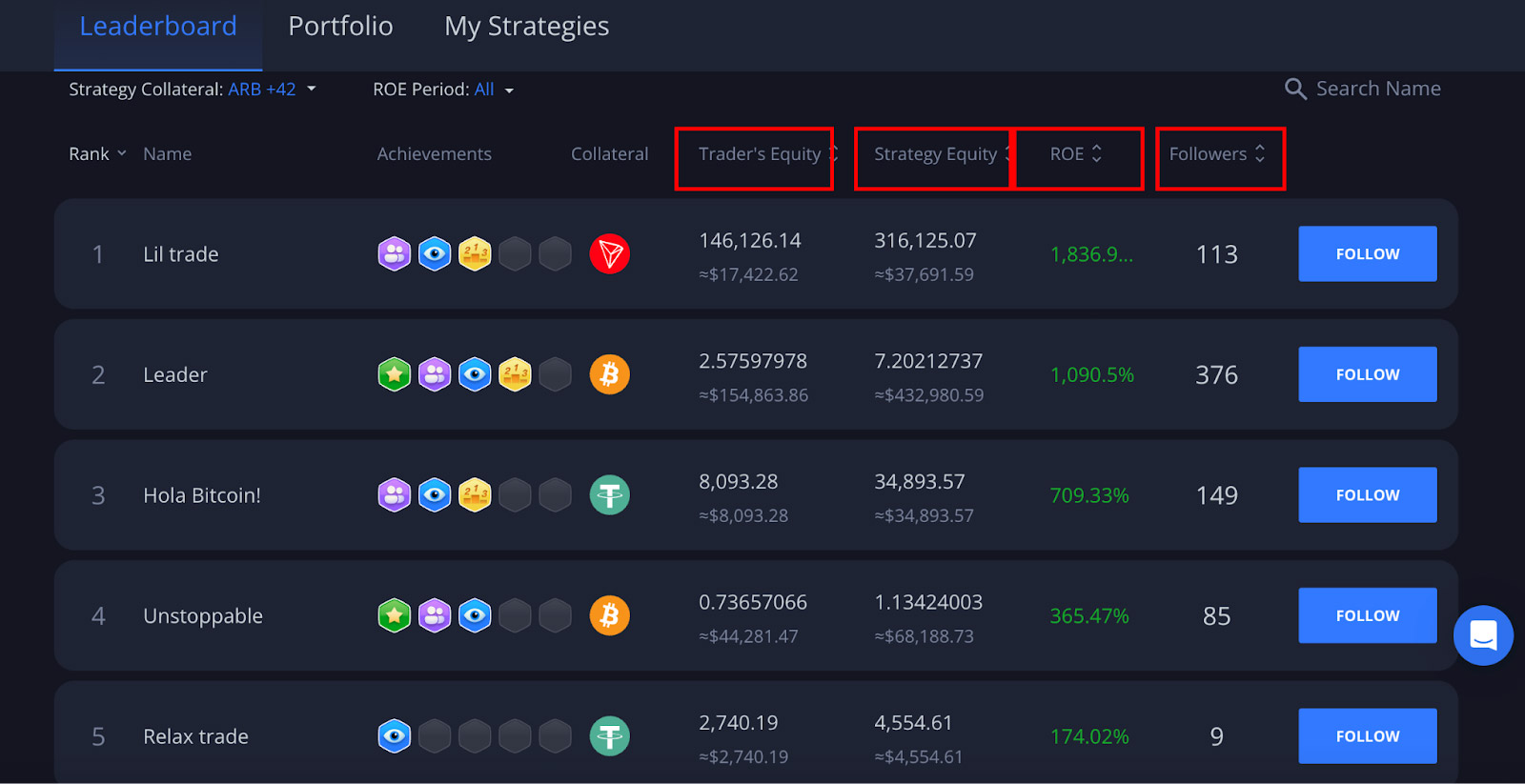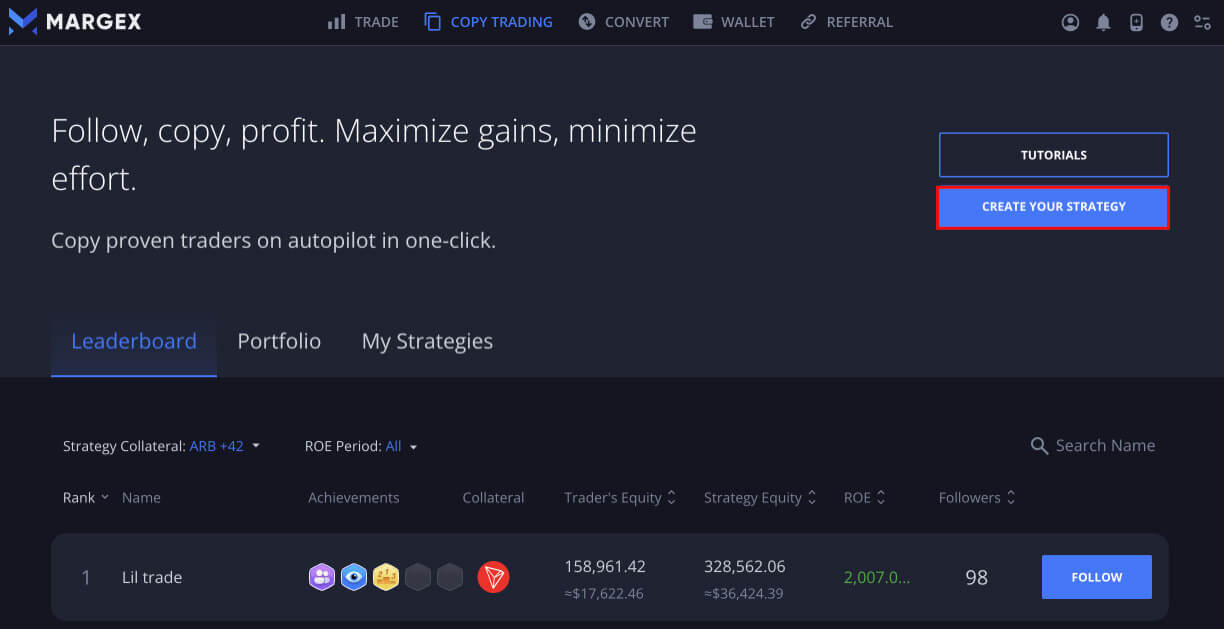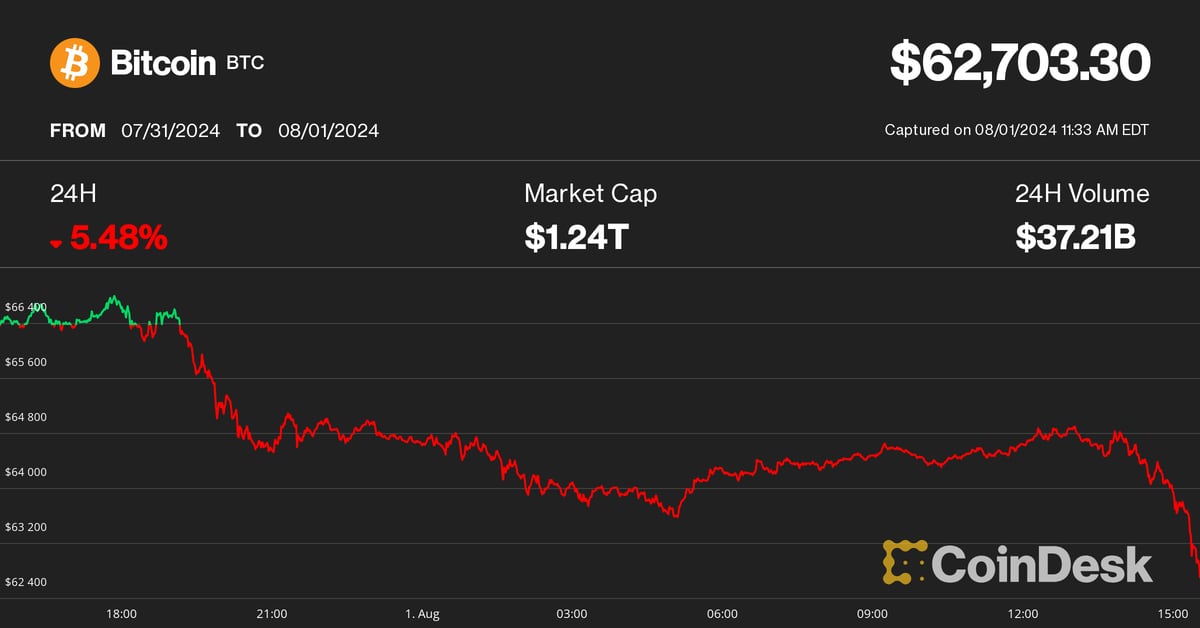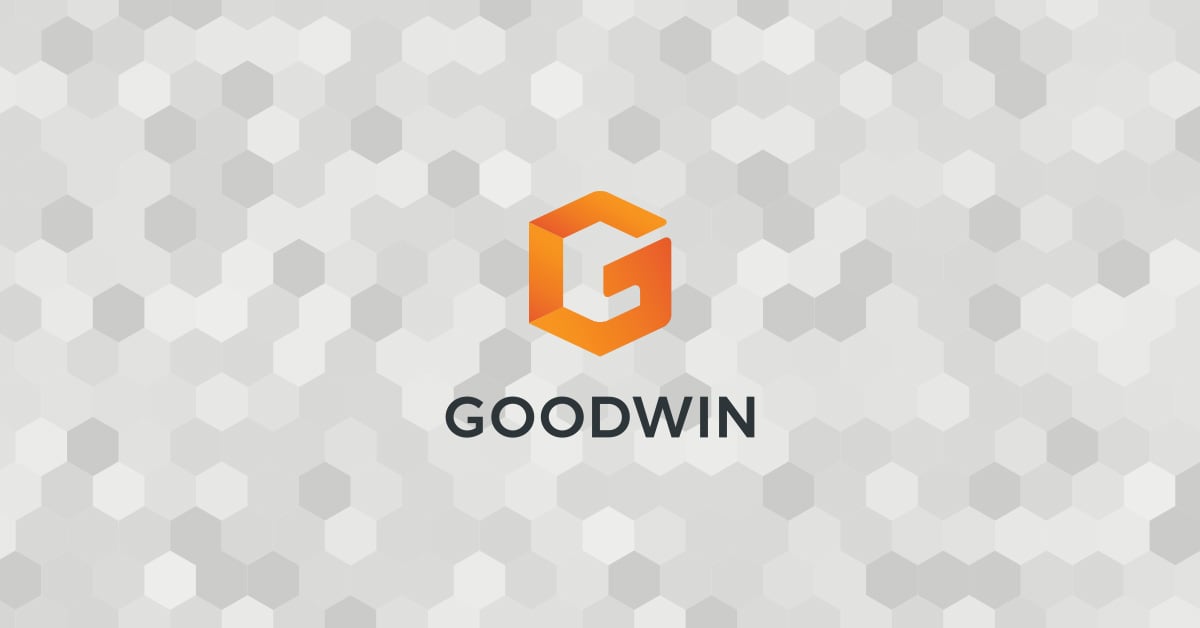Blockchain
Institutional money is returning to cryptocurrencies

Disclosure: This is a sponsored post. Readers should conduct further research before taking any action. Find out more >
Binance’s $4.3 billion settlement with US regulators was a major shift in the mindset of institutional adoption of digital assets, which has seen many dismissals from institutional players who label digital assets as commodities flashy and worthless products promoted by criminals.
Gradually, the tectonic plates of ideas that shaped the sentiments of these institutional corridors of power shifted. For the first time in decades, digital assets like Bitcoin (BTC) may come into ideological collision with a hallmark of institutional acceptance.
Many innovative ideas flow into the cryptocurrency space, creating endless market opportunities. Binance’s collaboration with Signum, which allows large cryptocurrency players to store their assets elsewhere, further amplifies many revolutions and will allow institutions to explore digital assets.
Additionally, institutions have continued to flock to the cryptocurrency market following the approval of the Bitcoin Exchange Traded Fund (ETF), allowing many firms to trade a proxy with low management fees and allowing them to participate in other strategies such as hedging.
These factors have attracted a lot of attention and money flow into the crypto space, as significantly seen in the performance of Bitcoin, which has reached new all-time highs. Smart money, retailers, families, hedge funds and corporations have recently added Bitcoin as a strategy for portfolio diversification.
Research has shown that a disconcerting result $17 billion in institutional capital has flooded the cryptocurrency space this year alone, as institutions continue to allocate a percentage of their investments to digital assets.
The opposite side The flow of Bitcoin ETFs shows that big players like BlackRock, Fidelity, VanEck and other institutional firms have shown a lot of interest in digital assets, with institutional money playing a key role in the current cryptocurrency market turmoil.
More than seven in ten institutional investors have shown a desire to diversify their investments into digital assets, with more than five of these institutional investors taking multiple actions to own these cryptocurrencies.
BlackRock Leads the Arrival of Institutional Money into Cryptocurrencies
BlackRock, a leading asset manager and one of the largest institutional giants in the world, has shown great interest in the cryptocurrency ecosystem, driving a lot of innovation in the tokenization of cryptocurrency assets.
These actions by highly respected financial services demonstrate a growing adoption of blockchain technologies among traditional organizations. The incredible benefits offered by the blockchain ecosystem, such as transparency, liquidity, and cross-project use cases, are driving this adoption.
Private companies initially dominated the blockchain ecosystem, but its mass adoption by institutions could pave the way for greater operational efficiency. Innovative ideas such as the tokenization of digital assets by a crypto startup, Libre, have attracted a lot of attention from JPMorgan and BlackRock, shifting their focus more on bringing innovation to this space and tokenization of digital assets.
BlackRock CEO Larry Fink sees blockchain technology and the tokenization of crypto assets as a blueprint to one day replicate such great ideas about stocks and bonds to achieve a unified blockchain ledger that enables instant transactions.
Unlock institutional opportunities
In the rapidly evolving world of finance, asset tokenization continues to spread across institutional organizations such as BlackRock, JPMorgan, Fidelity and others. It aims to be a foundational force and highly promising transformation for these institutions in the near future.
Recent research conducted by Boston Group Consulting (BGC) and investment firm ADDX shows a clear direction for most institutional firms showing more interest in the cryptocurrency ecosystem as their interest shifts towards asset tokenization. Asset tokenization is expected to be a $4 trillion industry as it attracts more institutions to the sector and could materialize in the next few decades.
This change in asset tokenization by financial institutions is not speculative with respect to the currency market trend, as it has been concretely manifested by these market players, who recognize the potential of this sector. The focus of traditional finance and blockchain technology to bridge the gap would be a ball set in motion, as this would enable liquidity, efficiency and better accessibility.
As this offers many opportunities to institutional investors, emerging technologies such as artificial intelligence (AI), copy trading, social trading and others have been adopted by many retailers to tap into the endless money flowing into the crypto space by institutional investors .
Margex Copy Trading helps retailers position themselves better in the market
The idea of traditional finance entering the cryptocurrency market was a mirage. Only recently have many traditional financial institutions shown a lot of interest in the crypto space.
Traditional financial institutions entering the cryptocurrency market excite many retailers. A lot of fresh money has been pumped into the market, suggesting that the current market uptrend is a factor in their presence. Many retailers would like to take advantage of the current market sentiment.
Exchange Traded Funds (ETFs) and Real World Assets (RWAs) have attracted the attention of institutions. Digital assets following this trend have exceeded expectations over the past couple of months, with the Margex platform ensuring these high-conviction assets are available for trading.
Margex is a leading cryptocurrency copy trading platform that allows users to replicate the trades of experienced traders. This gives users the opportunity to explore digital assets with real use cases and better profit potential.
Margex spent over $3 million redesigning its platform, focusing on usability. It introduced a zero-cost converter to allow users to exchange tokens easily and without costs. Margex plans to unveil an ultra-modern wallet that offers users a lot of security for assets and helps them have full custody of assets within the same platform.
Margex’s design of its copy trading platform gives users an advantage over other platforms. It allows users to copy the best traders with a win rate above 90% and proper risk management of users’ assets. Best of all, the trades are performed automatically without much monitoring.
Exploring Margex copy trading and earning mouth-watering returns from automated trades has never been easier. Here is a three-step process for using the Margex copy trading strategy.
1 Create a Margex account
Create a Margex allows users to access its copy trading.
2 Follow profitable expert traders


Follow your favorite expert trader to automatically replicate all trades and strategies. Margex copy trading rankings provide all the information users need to make the most informed decision on which expert trader to copy.
3 Assign funds to automate copy trading


All trades executed in real time allow users to copy the strategy or create a plan that suits them after assigning the desired amount to be placed for each trade.
Only $10 is the minimum amount required by Margex to participate in copy trading strategies.
Latest report on the Alpha market
Blockchain
Bitcoin (BTC) Price Crashes as Donald Trump’s Win Odds Dip

Markets received nominally good news on Thursday morning, with the US ISM manufacturing PMI for July falling much more than economists expected, sending interest rates to multi-month lows across the board. Additionally, initial jobless claims in the US jumped to their highest level in about a year. Taken together, the data adds to the sentiment that the US is on the verge of a cycle of monetary easing by the Federal Reserve, which is typically seen as bullish for risk assets, including bitcoin.
Blockchain
Terra Blockchain Reboots After Reentry Attack Leads to $4M Exploit

Please note that our Privacy Policy, terms of use, cookiesAND do not sell my personal information has been updated.
CoinDesk is a awarded press agency that deals with the cryptocurrency sector. Its journalists respect a rigorous set of editorial policiesIn November 2023, CoinDesk has been acquired from the Bullish group, owner of Bullisha regulated digital asset exchange. Bullish Group is majority owned by Block.one; both companies have interests in a variety of blockchain and digital asset businesses and significant digital asset holdings, including bitcoin. CoinDesk operates as an independent subsidiary with an editorial board to protect journalistic independence. CoinDesk employees, including journalists, are eligible to receive options in the Bullish group as part of their compensation.
Blockchain
$6.8M Stolen, ASTRO Collapses 60%

In the latest news in the blockchain industry, there has been a turn of events that has severely affected Terra and its users and investors, with the company losing $6.8 million. The attack, which exploited a reentry vulnerability in the network’s IBC hooks, raises questions about the security measures of the once celebrated blockchain protocol.
A web3 security company, Cyvers Alerts reported that the exploit occurred on July 31st and caused the company to lose 60 million ASTRO, 3.5 million USDC500,000 USDTand 2. 7 BitcoinThe flaw was discovered in April and allows cybercriminals to make payments non-stop by withdrawing money from the network.
Earth’s response
Subsequently, to the hack employed on the Terra blockchain, its official X platform declared the Suspension network operations for a few hours to apply the emergency measure. Finally in its sendTerra’s official account agreed, sharing that its operations are back online: the core transactions that make up the platform are now possible again.
However, the overall value of the various assets lost in the event was unclear.
Market Impact: ASTRO Crashes!
The hack had an immediate impact on the price of ASTRO, which dropped nearly 60% to $0.0206 following the network shutdown. This sharp decline highlights the vulnerability of token prices to security breaches and the resulting market volatility.
This incident is not the first time Terra has faced serious challenges. Earlier this year, the blockchain encountered significant problems that called into question its long-term viability. These repeated incidents underscore the need for stronger security measures to protect users’ assets and maintain trust in the network.
The recent Terra hack serves as a stark reminder of the ongoing security challenges in the blockchain space. As the platform works to regain stability, the broader crypto community will be watching closely.
Read also: Record Cryptocurrency Theft: Over $1 Billion Stolen in 2024
This is a major setback for Terra. How do you think this will impact the blockchain industry?
Blockchain
Luxembourg proposes updates to blockchain laws | Insights and resources

On July 24, 2024, the Ministry of Finance proposed Blockchain Bill IVwhich will provide greater flexibility and legal certainty for issuers using Distributed Ledger Technology (DLT). The bill will update three of Luxembourg’s financial laws, the Law of 6 April 2013 on dematerialised securitiesTHE Law of 5 April 1993 on the financial sector and the Law of 23 December 1998 establishing a financial sector supervisory commissionThis bill includes the additional option of a supervisory agent role and the inclusion of equity securities in dematerialized form.
DLT and Luxembourg
DLT is increasingly used in the financial and fund management sector in Luxembourg, offering numerous benefits and transforming various aspects of the industry.
Here are some examples:
- Digital Bonds: Luxembourg has seen multiple digital bond issuances via DLT. For example, the European Investment Bank has issued bonds that are registered, transferred and stored via DLT processes. These bonds are governed by Luxembourg law and registered on proprietary DLT platforms.
- Fund Administration: DLT can streamline fund administration processes, offering new opportunities and efficiencies for intermediaries, and can do the following:
- Automate capital calls and distributions using smart contracts,
- Simplify audits and ensure reporting accuracy through transparent and immutable transaction records.
- Warranty Management: Luxembourg-based DLT platforms allow clients to swap ownership of baskets of securities between different collateral pools at precise times.
- Tokenization: DLT is used to tokenize various assets, including real estate and luxury goods, by representing them in a tokenized and fractionalized format on the blockchain. This process can improve the liquidity and accessibility of traditionally illiquid assets.
- Tokenization of investment funds: DLT is being explored for the tokenization of investment funds, which can streamline the supply chain, reduce costs, and enable faster transactions. DLT can automate various elements of the supply chain, reducing the need for reconciliations between entities such as custodians, administrators, and investment managers.
- Issuance, settlement and payment platforms:Market participants are developing trusted networks using DLT technology to serve as a single source of shared truth among participants in financial instrument investment ecosystems.
- Legal framework: Luxembourg has adapted its legal framework to accommodate DLT, recognising the validity and enforceability of DLT-based financial instruments. This includes the following:
- Allow the use of DLT for the issuance of dematerialized securities,
- Recognize DLT for the circulation of securities,
- Enabling financial collateral arrangements on DLT financial instruments.
- Regulatory compliance: DLT can improve transparency in fund share ownership and regulatory compliance, providing fund managers with new opportunities for liquidity management and operational efficiency.
- Financial inclusion: By leveraging DLT, Luxembourg aims to promote greater financial inclusion and participation, potentially creating a more diverse and resilient financial system.
- Governance and ethics:The implementation of DLT can promote higher standards of governance and ethics, contributing to a more sustainable and responsible financial sector.
Luxembourg’s approach to DLT in finance and fund management is characterised by a principle of technology neutrality, recognising that innovative processes and technologies can contribute to improving financial services. This is exemplified by its commitment to creating a compatible legal and regulatory framework.
Short story
Luxembourg has already enacted three major blockchain-related laws, often referred to as Blockchain I, II and III.
Blockchain Law I (2019): This law, passed on March 1, 2019, was one of the first in the EU to recognize blockchain as equivalent to traditional transactions. It allowed the use of DLT for account registration, transfer, and materialization of securities.
Blockchain Law II (2021): Enacted on 22 January 2021, this law strengthened the Luxembourg legal framework on dematerialised securities. It recognised the possibility of using secure electronic registration mechanisms to issue such securities and expanded access for all credit institutions and investment firms.
Blockchain Act III (2023): Also known as Bill 8055, this is the most recent law in the blockchain field and was passed on March 14, 2023. This law has integrated the Luxembourg DLT framework in the following way:
- Update of the Act of 5 August 2005 on provisions relating to financial collateral to enable the use of electronic DLT as collateral on financial instruments registered in securities accounts,
- Implementation of EU Regulation 2022/858 on a pilot scheme for DLT-based market infrastructures (DLT Pilot Regulation),
- Redefining the notion of financial instruments in Law of 5 April 1993 on the financial sector and the Law of 30 May 2018 on financial instruments markets to align with the corresponding European regulations, including MiFID.
The Blockchain III Act strengthened the collateral rules for digital assets and aimed to increase legal certainty by allowing securities accounts on DLT to be pledged, while maintaining the efficient system of the 2005 Act on Financial Collateral Arrangements.
With the Blockchain IV bill, Luxembourg will build on the foundations laid by previous Blockchain laws and aims to consolidate Luxembourg’s position as a leading hub for financial innovation in Europe.
Blockchain Bill IV
The key provisions of the Blockchain IV bill include the following:
- Expanded scope: The bill expands the Luxembourg DLT legal framework to include equity securities in addition to debt securities. This expansion will allow the fund industry and transfer agents to use DLT to manage registers of shares and units, as well as to process fund shares.
- New role of the control agent: The bill introduces the role of a control agent as an alternative to the central account custodian for the issuance of dematerialised securities via DLT. This control agent can be an EU investment firm or a credit institution chosen by the issuer. This new role does not replace the current central account custodian, but, like all other roles, it must be notified to the Commission de Surveillance du Secteur Financier (CSSF), which is designated as the competent supervisory authority. The notification must be submitted two months after the control agent starts its activities.
- Responsibilities of the control agent: The control agent will manage the securities issuance account, verify the consistency between the securities issued and those registered on the DLT network, and supervise the chain of custody of the securities at the account holder and investor level.
- Simplified payment processesThe bill allows issuers to meet payment obligations under securities (such as interest, dividends or repayments) as soon as they have paid the relevant amounts to the paying agent, settlement agent or central account custodian.
- Simplified issuance and reconciliationThe bill simplifies the process of issuing, holding and reconciling dematerialized securities through DLT, eliminating the need for a central custodian to have a second level of custody and allowing securities to be credited directly to the accounts of investors or their delegates.
- Smart Contract Integration:The new processes can be executed using smart contracts with the assistance of the control agent, potentially increasing efficiency and reducing intermediation.
These changes are expected to bring several benefits to the Luxembourg financial sector, including:
- Fund Operations: Greater efficiency and reduced costs by leveraging DLT for the issuance and transfer of fund shares.
- Financial transactions: Greater transparency and security.
- Transparency of the regulatory environment: Increased attractiveness and competitiveness of the Luxembourg financial centre through greater legal clarity and flexibility for issuers and investors using DLT.
- Smart Contracts: Potential for automation of contractual terms, reduction of intermediaries and improvement of transaction traceability through smart contracts.
Blockchain Bill IV is part of Luxembourg’s ongoing strategy to develop a strong digital ecosystem as part of its economy and maintain its status as a leading hub for financial innovation. Luxembourg is positioning itself at the forefront of Europe’s growing digital financial landscape by constantly updating its regulatory framework.
Local regulations, such as Luxembourg law, complement European regulations by providing a more specific legal framework, adapted to local specificities. These local laws, together with European initiatives, aim to improve both the use and the security of projects involving new technologies. They help establish clear standards and promote consumer trust, while promoting innovation and ensuring better protection against potential risks associated with these emerging technologies. Check out our latest posts on these topics and, for more information on this law, blockchain technology and the tokenization mechanism, do not hesitate to contact us.
We are available to discuss any project related to digital finance, cryptocurrencies and disruptive technologies.
This informational piece, which may be considered advertising under the ethics rules of some jurisdictions, is provided with the understanding that it does not constitute the rendering of legal or other professional advice by Goodwin or its attorneys. Past results do not guarantee a similar outcome.
-

 Regulation7 months ago
Regulation7 months agoRipple CTO and Cardano founder clash over XRP’s regulatory challenges ⋆ ZyCrypto
-

 Regulation5 months ago
Regulation5 months agoNancy Pelosi Considers Supporting Republican Crypto Bill FIT21 – London Business News
-

 Videos6 months ago
Videos6 months agoCryptocurrency News: Bitcoin, ETH ETF, AI Crypto Rally, AKT, TON & MORE!!
-

 Regulation6 months ago
Regulation6 months agoBitcoin’s future is ‘bleak’ and ripe for regulation, says lead developer
-

 News6 months ago
News6 months agoThe trader earned $46 million with PEPE after reaching a new ATH
-

 Blockchain6 months ago
Blockchain6 months agoSolana ranks the fastest blockchain in the world, surpassing Ethereum, Polygon ⋆ ZyCrypto
-

 Blockchain6 months ago
Blockchain6 months agoSolana Surpasses Ethereum and Polygon as the Fastest Blockchain ⋆ ZyCrypto
-

 Regulation6 months ago
Regulation6 months ago🔒 Crypto needs regulation to thrive: Tyler Cowen
-

 Videos6 months ago
Videos6 months agoWho Really CONTROLS THE MARKETS!! Her plans REVEALED!!
-

 Videos7 months ago
Videos7 months agoKucoin safe?? Exchange REVIEW and beginner’s guide!!
-

 Blockchain6 months ago
Blockchain6 months ago“Liquid vesting” is an oxymoronic feature of blockchain that allows early investors to sell without waiting
-

 Videos6 months ago
Videos6 months agoInstitutions purchasing MEMECOINS?! Everything you need to know!





